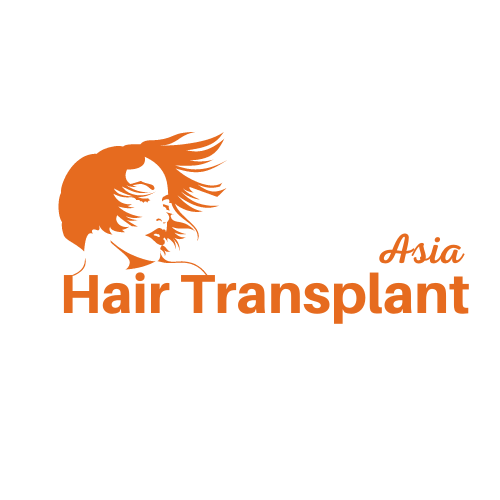San Francisco is a city that prides itself on innovation and excellence, and the same can be said for its hair transplant clinics. With so many options to choose from, it can be difficult to determine which clinic is the best for your needs. In this blog, we will explore some of the best hair transplant in San Francisco and what sets them apart from the competition.
5 Best Hair Transplant in San Francisco for Natural-Looking Results
Parsa Mohebi Hair Restoration
Parsa Mohebi Hair Restoration is one of the most well-known hair transplant clinics in San Francisco. Dr. Parsa Mohebi is a board-certified surgeon with over 10 years of experience in hair restoration. The clinic offers both FUT (follicular unit transplant) and FUE (follicular unit extraction) methods, as well as eyebrow and beard transplants.
One of the standout features of Parsa Mohebi Hair Restoration is the clinic’s commitment to personalized care. Dr. Mohebi takes the time to understand each patient’s unique needs and goals and develops a customized treatment plan to achieve the best possible results. The clinic also uses advanced technology, such as the ARTAS robotic system, to ensure precise and efficient hair transplantation.
Silicon Valley Hair Institute
Silicon Valley Hair Institute is a leading best hair transplant in San Francisco Bay Area. The clinic is headed by Dr. Miguel Canales, a board-certified surgeon with over 25 years of experience in hair restoration. The clinic offers both FUT and FUE methods, as well as Platelet Rich Plasma (PRP) therapy for hair loss.
One of the strengths of Silicon Valley Hair Institute is the clinic’s focus on patient education. Dr. Canales and his team take the time to explain the hair transplant process in detail and answer any questions patients may have. This helps patients feel more informed and confident about their decision to undergo hair restoration. The clinic also offers virtual consultations for patients who are unable to visit the clinic in person.
Elite Hair Restoration
Elite Hair Restoration is a top-rated hair transplant clinic in San Francisco. The clinic is led by Dr. Bernard Nusbaum, a board-certified surgeon with over 30 years of experience in hair restoration. Elite Hair Restoration offers both FUT and FUE methods, as well as eyebrow and beard transplants.
What sets Elite Hair Restoration apart is the clinic’s commitment to natural-looking results. Dr. Nusbaum and his team use a meticulous approach to ensure that each hair follicle is placed in the most natural direction and angle. The clinic also offers Platelet Rich Plasma (PRP) therapy to stimulate hair growth and improve the overall health of the scalp.
Limmer Hair Transplant Center
Limmer Hair Transplant Center is a highly regarded hair transplant clinic in San Francisco. The clinic is headed by Dr. Bradley Limmer, a board-certified surgeon with over 20 years of experience in hair restoration. The clinic offers both FUT and FUE methods, as well as Platelet Rich Plasma (PRP) therapy.
What sets Limmer Hair Transplant Center apart is the clinic’s emphasis on patient comfort. The clinic uses a local anesthetic to numb the scalp during the procedure, which helps minimize discomfort. Dr. Limmer also takes the time to explain each step of the process and answer any questions patients may have. The clinic offers virtual consultations for patients who are unable to visit the clinic in person.
Revive Hair Restoration
Revive Hair Restoration is a newer hair transplant clinic in San Francisco, but it has quickly established a reputation for excellence. The clinic is led by Dr. Alex Ginzburg, a board-certified surgeon with over 10 years of experience in hair restoration. Revive Hair Restoration offers both FUT and FUE methods, as well as Platelet Rich Plasma (PRP) therapy and scalp micropigmentation.
What sets Revive Hair Restoration apart is the clinic’s use of the latest technology and techniques in hair restoration. Dr. Ginzburg and his team use advanced tools such as the ARTAS robotic system and the Trivellini system to ensure precision and efficiency during the hair transplantation process. The clinic also offers virtual consultations for patients who are unable to visit the clinic in person.

Hair Transplant Cost in San Francisco
The cost of a hair transplant in San Francisco can vary depending on several factors, including the number of hair grafts needed, the surgeon’s experience, and the clinic’s location and reputation. On average, the cost of a hair transplant in San Francisco can range from $5,000 to $20,000. However, some clinics may offer financing options or payment plans to make the procedure more affordable for patients. It is important to research and compare the costs and services of different clinics before choosing a hair transplant provider. Additionally, it is important to consider the long-term benefits of a hair transplant and the potential cost savings compared to ongoing hair loss treatments
Conclusion
Choosing the best hair transplant in San Francisco depends on several factors, including the surgeon’s experience, the clinic’s technology and techniques, and the level of personalized care offered. The five clinics listed above are among the top hair transplant clinics in San Francisco, and each has its own strengths and unique approach to hair restoration.
If you are considering a hair transplant in San Francisco, it is important to do your research and choose a clinic that meets your needs and goals. Consult with a board-certified surgeon and ask for before and after photos of previous patients to get a better sense of the clinic’s results. With the right clinic and surgeon, you can achieve a natural-looking, full head of hair and restore your confidence and self-esteem.
FAQs
What is the best hair transplant clinic in USA?
It is difficult to determine the best hair transplant clinic in the USA as there are many reputable clinics across the country that offer high-quality hair restoration services. Some of the top hair transplant clinics in the USA include Bosley, Bernstein Medical, Rahal Hair Transplant, Hasson & Wong, and Beverly Hills Hair Restoration. However, it is important to research each clinic thoroughly and consult with a board-certified surgeon to determine which clinic is the best fit for your needs and goals. Factors such as the surgeon’s experience, the clinic’s technology and techniques, and the level of personalized care offered should be taken into consideration when choosing a hair transplant clinic.
How long does hair transplant last for?
A hair transplant is a surgical procedure that involves transplanting hair follicles from one area of the scalp (the donor site) to another (the recipient site) to restore hair growth in areas affected by hair loss. The results of a hair transplant can vary depending on the individual, but in general, the transplanted hair should be permanent and last for the rest of the patient’s life.
After the hair transplant procedure, the transplanted hair may initially fall out within the first few weeks. However, the hair follicles should remain intact and begin to regrow new hair within a few months. Over time, the transplanted hair should become thicker and fuller, blending in with the patient’s natural hair.
It is important to note that while the transplanted hair should be permanent, hair loss may continue to occur in other areas of the scalp due to genetic factors or other causes. Therefore, some patients may require additional hair transplant procedures in the future to maintain their desired level of hair density. Additionally, proper hair care and maintenance, as well as ongoing medical treatments, may also be necessary to ensure the longevity of the transplanted hair
Which age is best for hair transplant?
The best age for a hair transplant can vary depending on the individual’s hair loss patterns, age, and overall health. In general, hair transplant surgeons prefer to perform the procedure on individuals who have reached their early 30s or older, as hair loss patterns are more stable and easier to predict at this age. However, some patients may be candidates for a hair transplant in their 20s if they have experienced significant hair loss due to genetics or other factors.
It is important to note that hair transplant surgeons will evaluate each patient’s individual hair loss pattern, the quality and quantity of the donor hair, and their overall health to determine if they are a good candidate for the procedure. Additionally, patients should have realistic expectations about the results of the procedure, as hair transplant surgery cannot create an unlimited supply of hair and cannot stop the progression of hair loss in other areas of the scalp. Therefore, a thorough consultation with a board-certified hair transplant surgeon is essential to determine the best age and approach for hair restoration.
Can you lose transplanted hair?
While the transplanted hair from a hair transplant procedure is permanent and should last for the rest of the patient’s life, it is possible to experience some shedding in the initial weeks and months following the procedure. This shedding is a normal part of the hair transplant process and occurs as the transplanted hair follicles adjust to their new location on the scalp. The shedding should not be a cause for concern, as the hair follicles should remain intact and begin to regrow new hair within a few months.
It is also important to note that hair loss may continue to occur in other areas of the scalp due to genetic factors or other causes. Therefore, some patients may require additional hair transplant procedures in the future to maintain their desired level of hair density. Proper hair care and maintenance, as well as ongoing medical treatments, may also be necessary to ensure the longevity of the transplanted hair.
